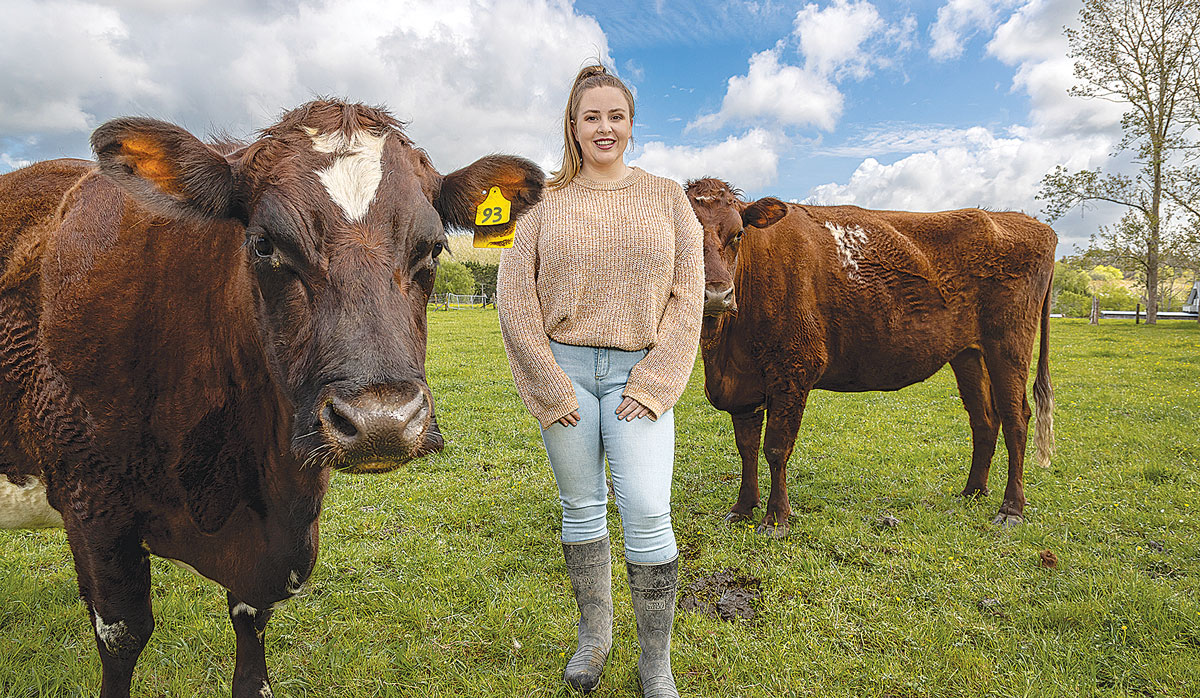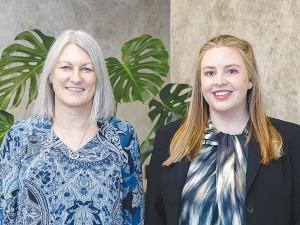A Dairy Flat local, Davies, who is 28, has just finished up after four years working for an environmental leadership charity while completing her MBA.
In 2023, she completed a short stint as a guest tutor at the King Abdullah University of Science and Technology in Saudi Arabia.
Her dual Masters qualifications from Massey University - an MBA and Master of Natural Science - stood her in good stead there, putting her among nine other international tutors invited to attend.
"It was an incredible opportunity," she explains.
"We worked with some of Saudi Arabia's top young people, covering areas including desert agriculture, desalination, Red Sea research and computational bio-science."
Davies also recently attended a ten-day conference in Tanzania - the Africa Food System Forum - as part of her role with the Next Generation Ag Impact Network (NGAIN), which she leads.
She spoke with ANZ New Zealand chief executive Antonia Watson as part of the bank's Watch Women Win initiative, which highlights and celebrates female success.
Davies told Watson she is keen to explore as many different paths as possible to grow as a leader while looking for her next role. However, she had often wondered whether employers value candidates with a diverse range of experiences, over those who choose to commit to one singular field early on in their career.
"I think it can definitely be an advantage. People look for a broad range of experiences now," Watson adds. "Some people do have a linear career - but more often you see the people who are really successful have had other experiences."
Watson says just because someone went to a great school and got top marks does not mean they'll be the right fit for a role.
"Actually, that is potentially just a sign of a privileged upbringing, and it doesn't necessarily mean you're going to be better at doing the job. I think it's worth people looking for different opportunities - it's not just about skillsets, it's about the attributes that you have."
Davies says she had experienced Tall Poppy Syndrome - even doubting herself when she considered posting online about her latest experiences, projects or successes - as a result of a conversation with a previous male manager who told her to 'reign in her ego' as it 'isn't a good look'.
"I saw a quote on Instagram recently - 'bright lights attract bugs' - and it really resonated," she adds.
"It's this idea that people shine brightly, or are in the spotlight, attract critique - so that's something I've struggled with, always wondering where to draw the line (if there is one) between being proud of what I have worked to achieve and achieving in isolation."
"But then I see the women that I look up to, and they are sharing their own successes, and are proud of that."
Cows Keep Her Grounded
For now, Davies is enjoying her time between jobs and is spending more tme with her beloved cows. The award-winning Ayrshire cattle she exhibits at A&P Shows are more like pets than commercial stock, she says, and her Inca Ayrshire stud is going strong.
 |
|---|
|
Courtney Davies is enjoying her time between jobs and is spending more time with her beloved cows. |
It was her cows that gave her a first nudge towards the sciences.
"I got into science when one of my cows got mastitis," she explains. "I was really interested in the microbial side of it, the very small things we can't see that have such a huge impact, and that led me into my first Masters degree."
For her Master of Natural Science thesis, she developed a way of utilising special proteins from "bacteriophage" viruses - viruses that can kill bacteria - as a proof of concept approach which could aid in reducing antibiotic resistant diseases across agriculture and human health.
These bacteriophage proteins were isolated in a way where they could instantly kill pathogenic bacteria on contact, "like a needle to a balloon", without impacting other bacterial strains.
Davies thinks approaches like this, as well as the adoption of other new technology, will be increasingly embraced by the New Zealand agri community in the coming decades.
"I think in the next few years there will be changes to people's mindset around the value of our agricultural products, and more investment into increasing efficiency rather than purely destocking," she said.
"I can see that sustainability efforts will continue to evolve. At the end of the day, both our farmers and consumers value our land - to grow increasing amounts of nutritious food and to be able to consume New Zealand-grown produce. It cannot be one without the other."

















